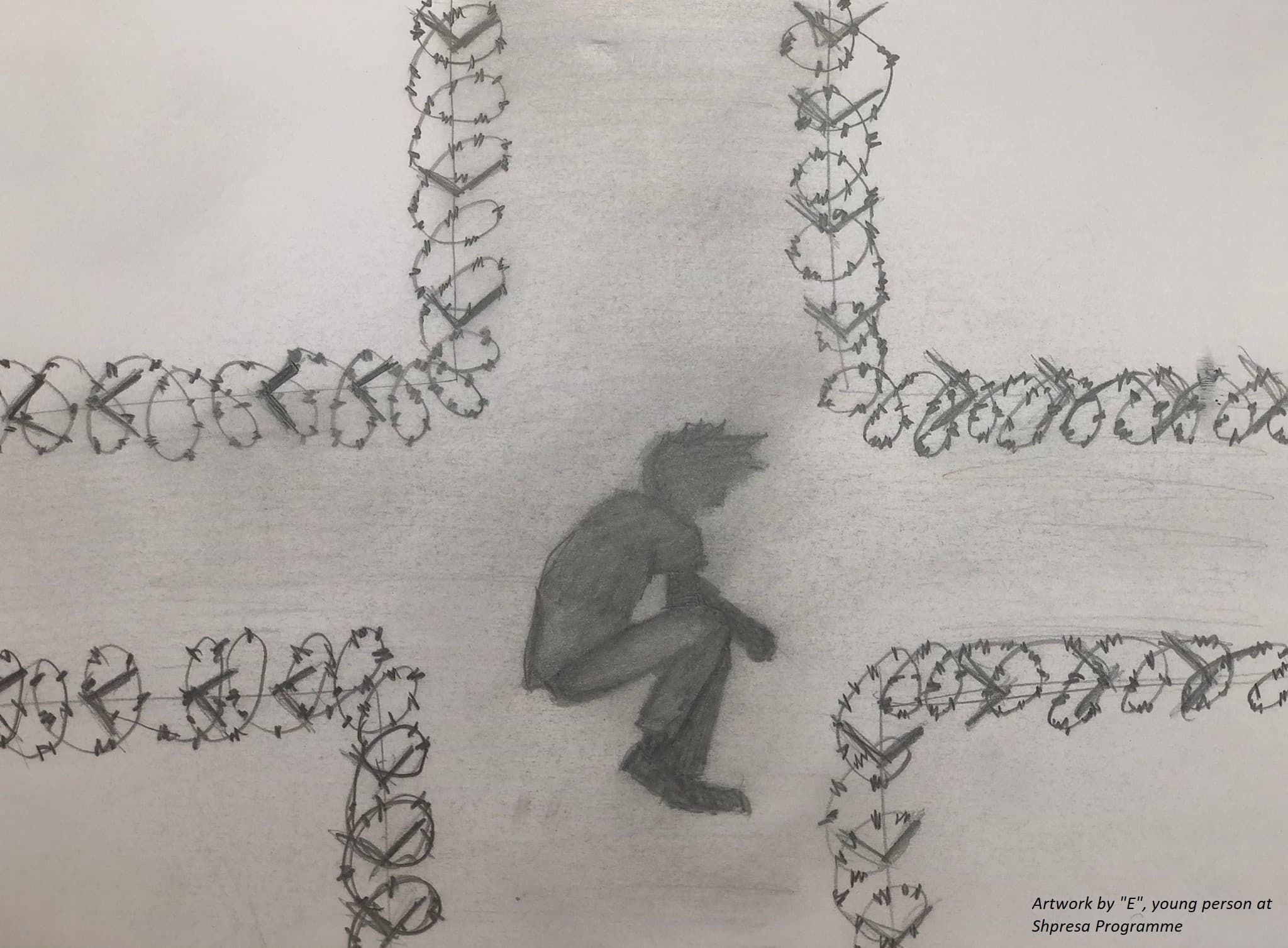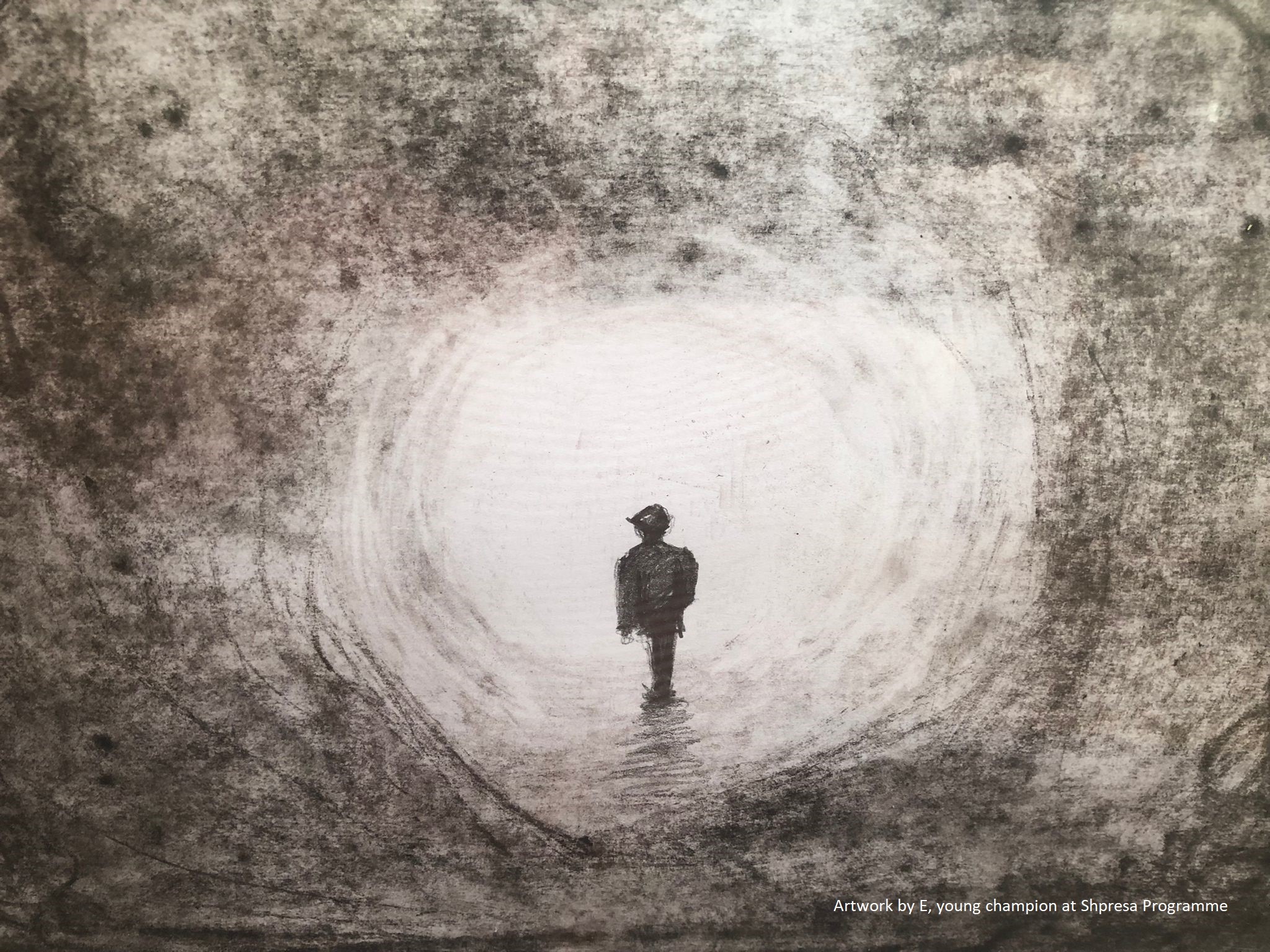- news
Monday, 15th January 2024
Immigration scapegoats: Albanian asylum seekers and the Law Centre partnership fighting back

Government policy and rhetoric increasingly targets Albanian asylum seekers. It is within this context that at the end of 2023, we saw the deaths of two Albanian men by suicide. A 37-year-old man had been detained at Brook House near Gatwick Airport, and Leonard Farruku, 27, died on the Bibby Stockholm.
A Law Centre project has been working with Albanian asylum seekers for some time, but the current crisis means it has raised the alarm for urgent help.
Past and present threats
There have been repeated attempts over the last few decades to restrict Albanian asylum claims regardless of their validity. Here’s a short overview of the headline actions:
In 2003, under section 94 of the Nationality, Immigration and Asylum Act 2002, Albania is designated a "safe country."
December 2022: the government signs a communiqué with the Albanian government to “maximise implementation of the UK-Albanian readmissions agreement [and] increase returns to Albania including those over the age of 18 who have been identified by UK competent authorities as victims of modern slavery.”
September 2023: the government announces that it is expediting claims from Albanians by using over 100 dedicated staff, and updating new guidance for caseworkers framing Albania as a safe country.
Section 59 of the Illegal Migration Act 2023 is set to make all Albanian asylum claims inadmissible. If the regulations required to implement the provisions in s.59 are published, this will see Albanian adults and children face removal to Albania without any interim relief to prevent their removal, even if arguments that they will face serious harm or death on removal have not been considered by any court.
Not a safe country
The government’s own country information indicates that Albania has significant and longstanding issues related to corruption, trafficking, blood feuds, discrimination and violence against the LGBTQI community, stigma and discrimination against the Roma community, gang-related violence, and sexual and domestic violence that the Albanian government appears either unable or unwilling to resolve. Read more on MiCLU's website: Is Albania a Safe Country?
The proof is in the pudding
The grant rate for initial decisions on Albanian asylum claims in 2022 was 60%. Those that were rejected first time round but appealed to the First-tier Tribunal had a 57% success rate.
In other words, the Home Office eventually recognises the majority of Albanian asylum seekers as refugees. So, how can the government’s actions be interpreted as anything other than political?
The Law Centre project fighting back
The Migrant & Refugee Children’s Legal Unit (MiCLU) at Islington Law Centre began working with an Albanian community organisation, Shpresa Programme, in 2018. They set up the Breaking the Chains project, a holistic legal representation and advice service which is child-centred. The partnership has gone from strength to strength, securing the immigration status of Albanian children in its casework, training young people as Immigration Champions, launching strategic litigation to solve systemic issues, and providing extensive resources and guidance for those working with young Albanian asylum seekers.
While the project has made an enormous difference to the lives of the young people it has supported, like much Law Centre work, it cannot meet the demand. Albanians were the most common nationality entering immigration detention in both 2022 and 2023 and are consistently among the top nationality referred to the National Referral Mechanism as victims of trafficking. More than 658 Albanians (including more than 60 unaccompanied children) were recognised by the Home Office during 2022 as needing international protection. Very few legal routes to the UK exist. As such, the vast majority of this cohort will have arrived illegally. If section 59 of the Illegal Migration is brought into force, any young people like them will be removed directly to Albania where they will face persecution and further exploitation.
Breaking the Chains, and Garden Court Chambers with whom it partners, are continuing to win cases, and are fighting to challenge the upcoming changes. But, access to legal representation is becoming more challenging as private practices need to sustain their business models, and many such children are going unrepresented. MiCLU need more hands on deck, and have put a callout to legal organisations across the UK to expand capacity.
What's clear is that the Albanian experience is central to the UK asylum crisis as a whole. The strongest attack on the right to seek safety must be met with a stronger response.
How to help:
For lawyers: take on an asylum case
For other ways to get involved and to learn more about the project, visit the MiCLU website or email miclu@islingtonlaw.org.uk.
For media enquiries, please contact media@lawcentres.org.uk

Latest News
Monday, 1st December 2025
Law Centre housing lawyer celebrated for "energy, empathy and resolve"Friday, 21st November 2025
Navigating Uncertainty: our latest annual review is outMonday, 10th November 2025
Remembering Sir Geoffrey Bindman
Stay in the loop
Sign up for our monthly newsletter to stay in the loop